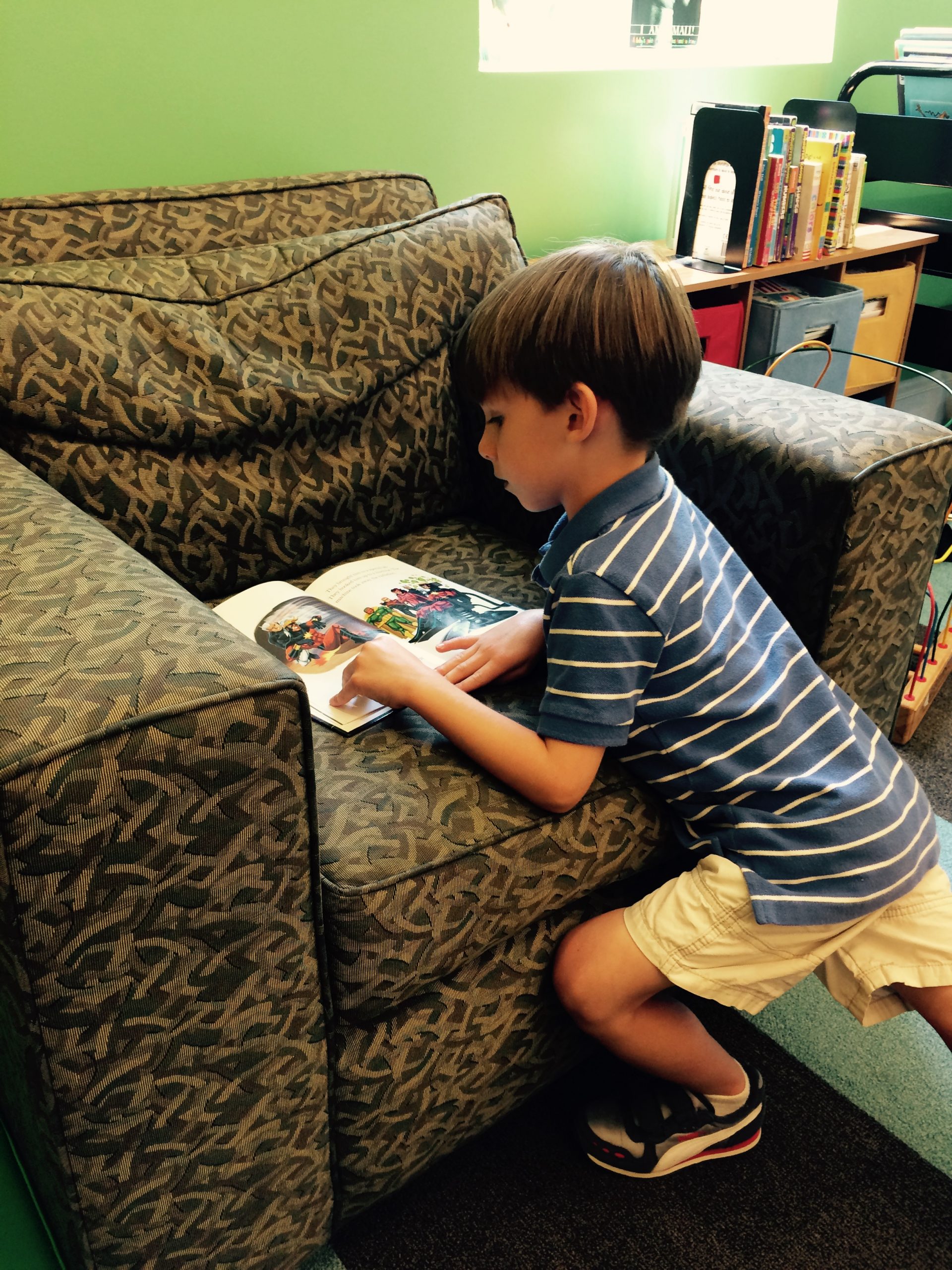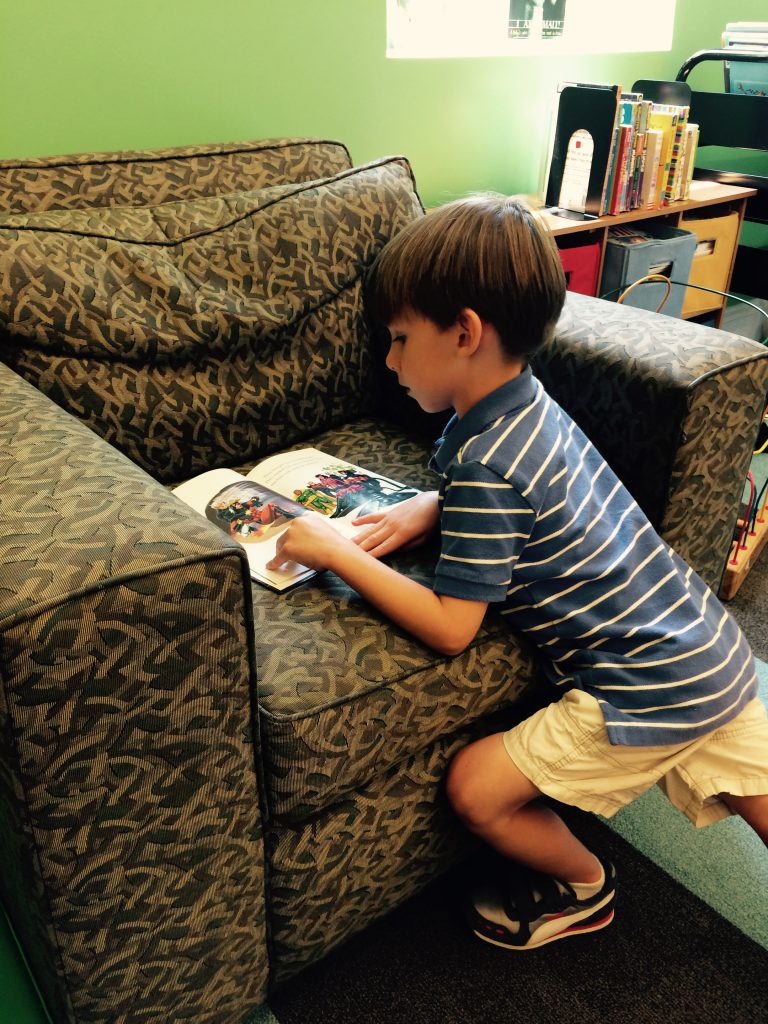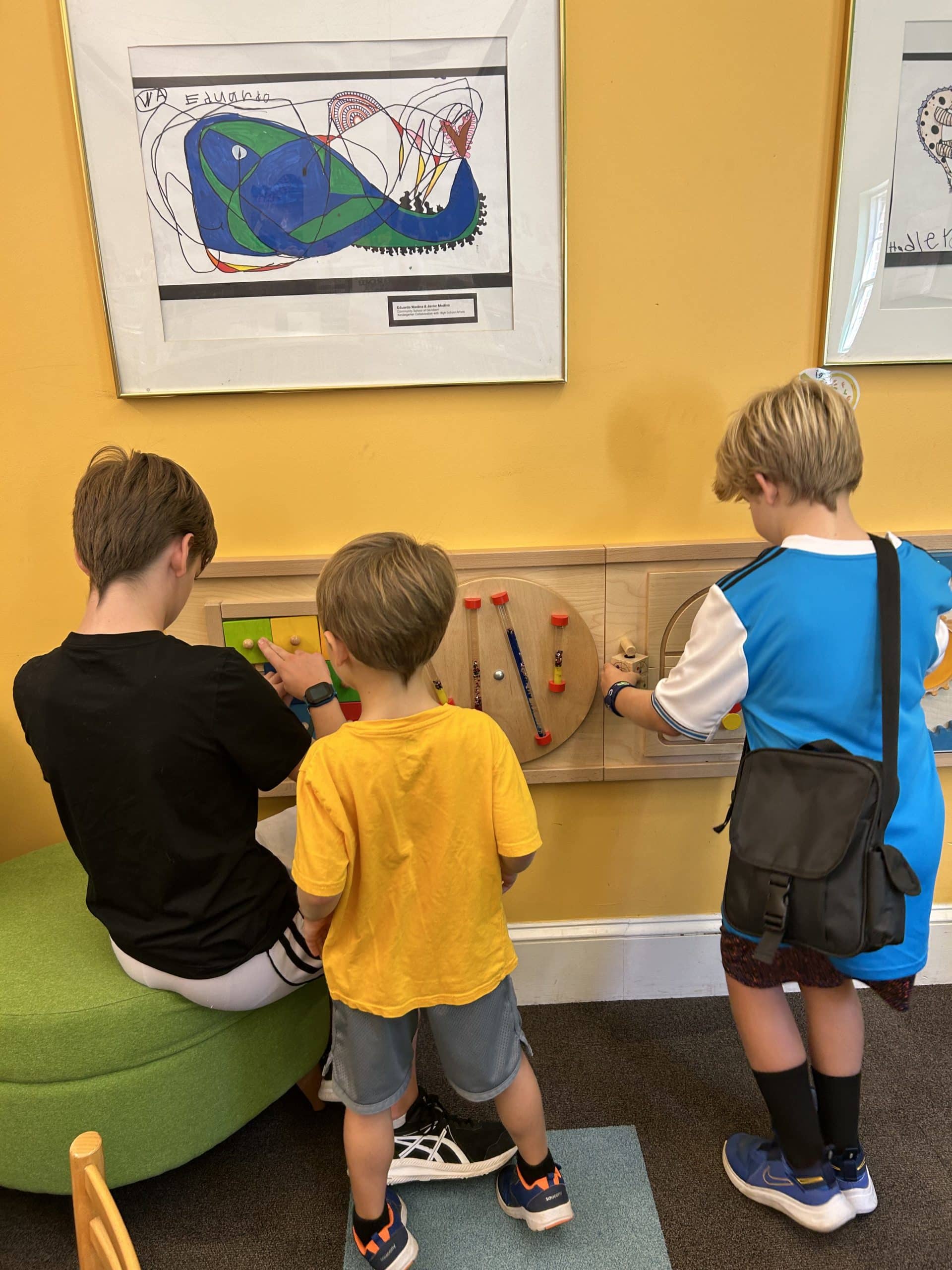Independent reading, or with another is a skill that builds verbal and non-verbal communication while school is not in session. It is important to never have students take a break from learning. Over 100 years of research finds that children lose one to two months of reading skills over the summer. And, by the time elementary children are in 6th grade, there is a two-year loss of skills. It is important to continue to build reading skills out of school.
There are many places in the community to find book lists for summer reading. Both libraries and book stores have suggestions for young adults and elementary age children. For children ages 3-5, Amazon has many suggestions.

Encouraging Independent Reading In The Summer
• Read any book daily for about 30 min.
• Give a reward or incentive for reading.
• Make reading a social event with family or friends.
• Read about an event or an activity in which the child participates.
• Keep books in the car for children to read on the way to soccer, baseball, swimming practice, or to the mall.
• Read 10 minutes before going to bed.
So, what are the benefits of summer independent reading? For one thing, reading for long stretches of time builds stamina and fluency. The more children read, the better their fluency, vocabulary and comprehension. Through reading, children build background knowledge and cultural literacy. Also, independent summer reading builds lifelong readers. Reading opens door to great ideas and endless information.
When children select their own books, they contribute to their own knowledge. They have control over what they want to learn. Thus, they view reading as a priority. And, it is fun. A child’s literacy success is built on independent reading. Therefore, they must be given time to read and discuss what they are reading in order to become strong independent readers and thinkers.




